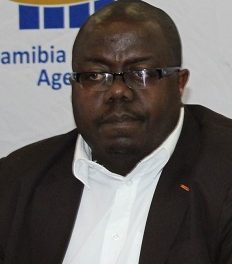
Namibian pension fund exposure to Steinhoff shareholding very limited

Steinhoff, the international retailer conglomerate that lost more than R130 billion in market capitalisation in just two weeks following the disclosure of financial irregularities, met on Tuesday with representatives of a US investment bank to finance a possible transitioning strategy while the company tries to patch the sinkhole in its balance sheet.
Steinhoff’s primary listing was moved from the Johannesburg Securities Exchange to the Frankfurt Stock Exchange in 2015, ostensibly in a move to raise more funding for its very ambitious international expansion plans.
On Tuesday, Reuters reported that Steinhoff Chairman, Christo Wiese had resigned earlier and that the company is meeting officials of Moelis & Co to prepare for a crucial meeting with the company’s bankers and bondholders in London.
Following a flood of enquiries by Namibian investors, Retirement Fund Solutions Managing Director, Tilman Friedrich, did his own research in an attempt to determine the exposure of local asset managers to Steinhoff holdings. Steinhoff lost between 80% and 90% of its market value in just ten trading days.
On Friday 15 December, Friedrich stated in his regular investment newsletter that pension fund members are protected by prudential investment guidelines. Surprisingly, according to feedback Friedrich received from Namibian asset managers, their Steinhoff exposure is very limited, far below the 10% statutory limit for companies with a market capitalisation of more than N$5 billion.
Only four Namibian asset managers hold more than 1% of their total portfolios in Steinhoff. These are Namibia Asset Management with approximately 1.5%, Sanlam Namibia Stable Bonus fund with 1.2%, Old Mutual Namibia Profile fund with 1.4%, and Momentum Namibia, also with around 1.5%.
Of the fourteen asset managers that responded to Friedrich’s research, only two had zero exposure while the rest reported holdings between 0.2% and 1%.
Friedrich stated “pension funds spread their investment across anything between 30 and 100 companies, and those are typically the large listed companies. No pension fund may invest more than 5% of its capital in a single property. It may invest a maximum of 10% of its capital in a company which has a market capitalisation of at least N$5 billion or a maximum of 5% if the market capitalisation is less than N$5 billion. It may not invest more than 20% of its capital in a single banking institution or in bills, bonds or securities issued by a single local authority or state-owned enterprise. These are the caps and in most instances investment managers stay far clear of these caps.”
Also on Tuesday, the supervisory board appointed for Steinhoff announced on the JSE Stock Exchange News Service, SENS, that Danie van der Merwe, the former Chief Operating Officer, is now the acting Chief Executive and that the management board has been strengthened further by the appointment of Alexandre Nodale as deputy Chief Executive, and Louis du Preez as Commercial Director. Nodale is described as experienced in European retail while du Preez is an experienced commercial lawyer.
A company analyst speculated that overstating of revenue is not uncommon where a substantial part of the executive management’s remuneration is based on performance. “When an executive earns very large bonuses for growing revenues, there is a strong incentive to exploit accounting weaknesses to overstate revenue,” one of the key areas for which Steinhoff has been investigated by German authorities for the 2014, 2015 and 2016 financial years.








































